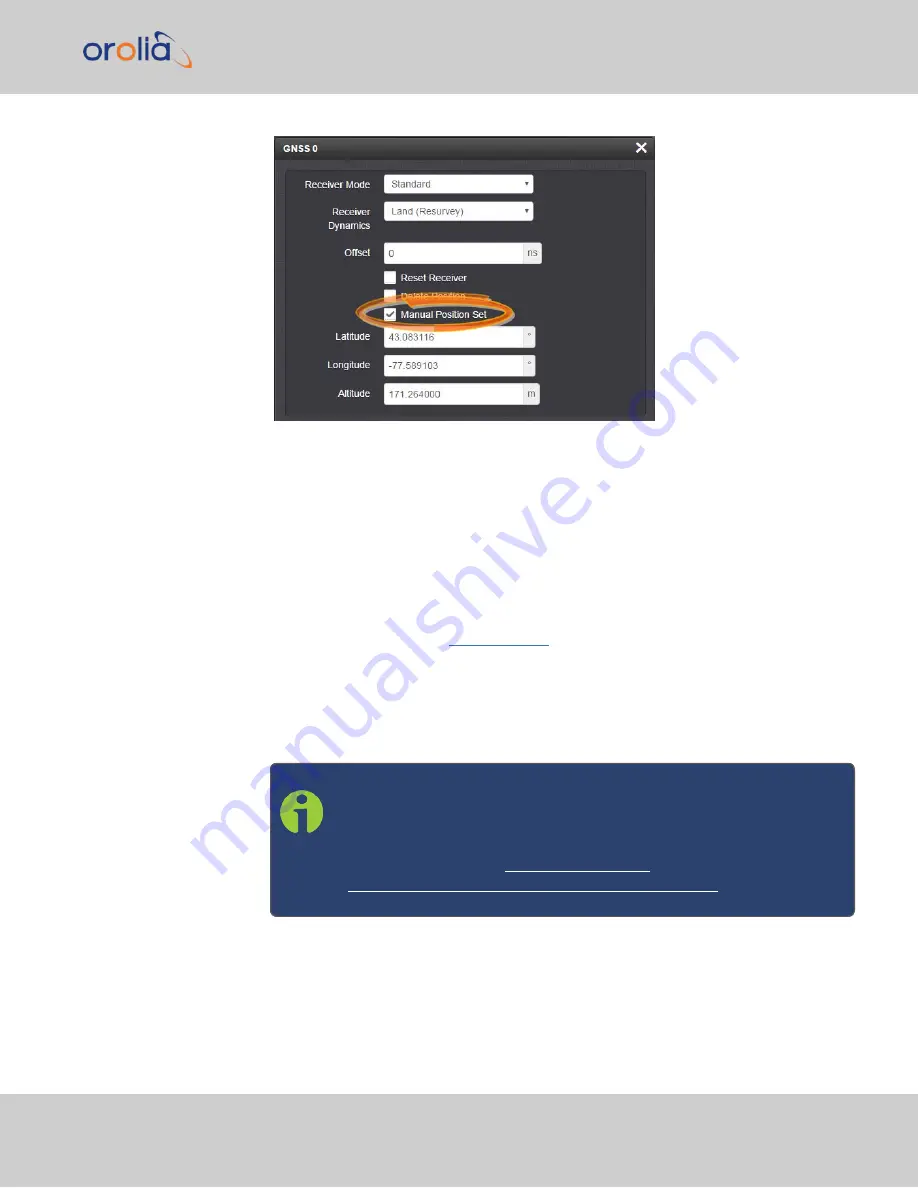
3.
Under
Manual Position Set
accurately enter
latitude
,
longitude
(both in decimal
degrees), and
altitude
(in meters [
WGS 84
]) of your GNSS antenna, VelaSync
can use this data during the satellite tracking/adjustment process, which typically
leads to a quicker "fix". It is recommended to enter the position as accurately as
possible.
Determining Your Position
To determine your GNSS position, using Google Maps™:
1.
.
2.
In Google Maps, locate your building, and the location of your antenna.
3.
Right-click on the location. Select
What's here?
At the bottom, you will see a card
with the coordinates.
4.
Take note of your
decimal
position (e.g., 43.083191, -77.589718).
Note:
Should you prefer to determine your position in a different
way, and as a result, have your latitude & longitude data in
degrees/minutes/ seconds, you need to convert this data to the
decimal format e.g., by using a conversion tool, such as Earth
Point
,
or
https://www.fcc.gov/media/radio/dms-decimal
3.3 Managing References
CHAPTER
3
•
VelaSync User's Manual Rev. 3
139
Summary of Contents for VelaSync 1225
Page 2: ......
Page 4: ...Blank page II VelaSync User s Manual...
Page 12: ...BLANK PAGE X VelaSync User s Manual TABLE OF CONTENTS...
Page 28: ...16 CHAPTER 1 VelaSync User s Manual Rev 3 1 7 The VelaSync Web UI...
Page 34: ...BLANK PAGE 1 9 Regulatory Compliance 22 CHAPTER 1 VelaSync User s Manual Rev 3...
Page 104: ...BLANK PAGE 2 11 Configuring PTP 92 CHAPTER 2 VelaSync User s Manual Rev 3...
Page 251: ...Server management System specifications VelaSync User s Manual 239 APPENDIX...
Page 267: ...VelaSync User s Manual 255 APPENDIX...






























